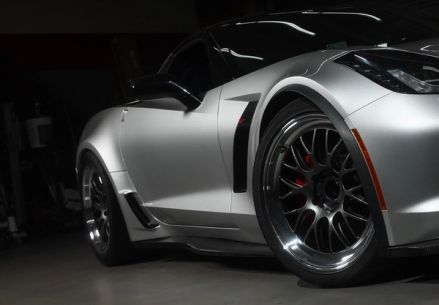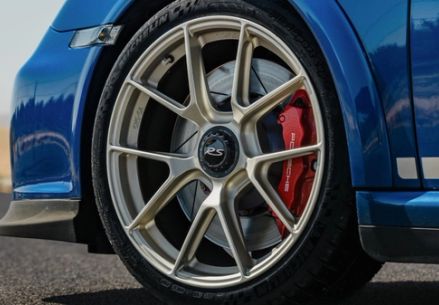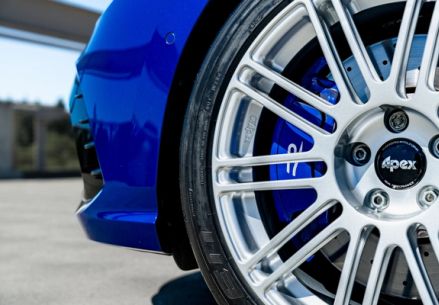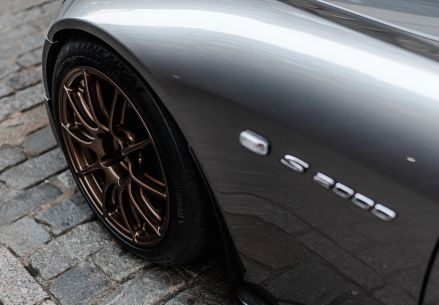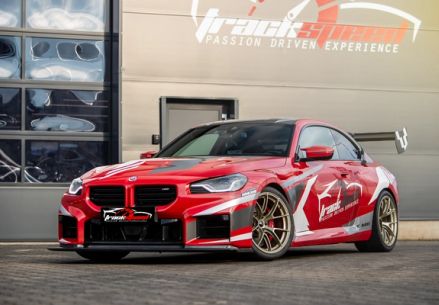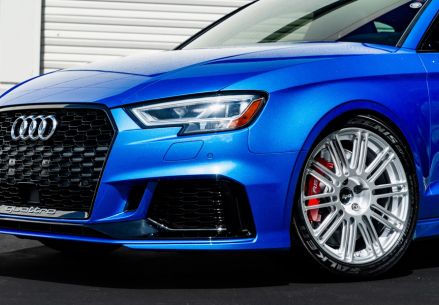
What Are 3-Piece Wheels? 3-Piece, 2-Piece, and 1-Piece Wheels Explained
Article | 12/04/2024 by Tom Maloney
Updated on 12/20/2024
Most car enthusiasts find their way into the world of aftermarket wheels by chasing a specific look, but the reality is wheels play a major role in how your car performs – a role that’s often deeply misunderstood. The world of aftermarket wheels can be an overwhelming one at first; there’s incredible diversity available in wheel designs, and all of those different designs offer different performance characteristics – or lack thereof.
Before you start learning about the differences in wheel manufacturing techniques – i.e. how forged wheels or flow-formed wheels are made – the best place to start learning what sets different performance wheels apart from others would be to learn what the differences are between the basic construction types.
So, what are 3-piece, 2-piece, and 1-piece wheels? These are different wheel construction types and all have their own pros and cons, and there’s a wide range of quality levels and options to be found within each construction category. We’ll explore the basics in this article.

What Are 3-Piece Wheels?
3-piece wheels are a modular design that separate the wheel’s barrel into inner and outer sections, which are either joined by bolts or welded together with a center section. This modular construction makes 3-piece wheels extremely customizable when it comes to different sizes and offsets – ideal for cars with unique fitment requirements.

Are 3-Piece Wheels Good for Racing?
This modular construction style also makes 3-piece wheels easy to rebuild and repair if damaged as parts can be replaced, rather than trashing the whole wheel. This particular benefit has made these wheels a favorite for serious motorsports teams as 3-piece wheels are ideally suited to trackside repairs when they are inevitably damaged in the heat of competition, and often without having to scrap the whole center section – the most expensive component of the wheel to manufacture.
While some 3-piece wheel designs can deliver extremely high performance and are run by major racing teams, they also have their drawbacks – especially for street cars. 3-piece wheels almost universally have their barrel sections spun from aluminum discs, which limits the geometry possible in terms of inner and outer lip flange reinforcement as the material used typically needs to be of constant thickness when made this way. Some reinforcement is possible by folding material over on itself, but this is both difficult to do consistently and not optimal in terms of where the reinforcing material is positioned. Lip design plays a very big role in a wheel’s performance.

Why do 3-Piece Wheels Leak Air?
3-piece wheels are inherently prone to leaking air as their inner and outer barrels rely on either a sealant or a gasket to keep the air where it belongs. You’ll also find that 3-piece wheels that use bolts to join their sections can leak from those bolts, and those bolts are going to need frequent tightening and inspection for road cars. Their complex designs also make 3-piece wheels very expensive, and, on a more superficial level, many 3-piece wheel designs are extremely difficult to keep clean.

What are 2-Piece wheels?
2-piece wheels are another modular wheel type, but instead of using an inner and outer barrel like 3-piece wheels, they join a center section (the wheel’s face, hub, and mounting surface) with a single barrel. With 2-piece wheels, the barrel and center section are typically joined by welding – though some bolt together like 3-piece wheels with what’s called an assembly flange.
2-piece wheels are customizable when it comes to sizes and offsets like a 3-piece wheel and can be repaired by swapping out broken parts, but because these designs are so frequently welded together, they aren’t nearly as efficient to repair. 2-piece wheels are great for those looking for a highly customizable option, but can be heavy, expensive, and tend not to offer the same performance characteristics or perks, like efficient repairs, as similarly expensive 3-piece wheels.

What Are 1-Piece or Monoblock Wheels?
1-piece wheels are wheels made with a single, continuous casting or forging, depending on which manufacturing technique they were made using. A 1-piece wheel combines the face disc or center section and the wheel’s barrel in a single casting or forging, meaning these are not an easily customizable option.
However, certain types of 1-piece wheels, like those made using monoblock forging, can offer an unbeatable balance between strength, stiffness, and weight savings, making them the best high performance option for many applications depending on how good the design itself is.

1-piece wheels have minimal maintenance requirements relative to 2-piece and 3-piece wheels, which need their bolts checked often and need to be monitored closely for leaks. 1-piece wheels are also extremely durable, and most 3-piece and 2-piece wheels use spun-disc barrels, which cannot be made with the same level of reinforcement or strength as the barrels of a monoblock wheel.
The lack of bolts or heavily-reinforced assembly flanges means 1-piece wheels tend to offer much more substantial weight savings than modular designs.
Something to note is that there are many different factors that go into how well a 1-piece wheel performs and how appropriate it is for different applications. Beyond just finding the right 1-piece wheel for your particular fitment, there are three different manufacturing techniques used to make 1-piece wheels and whether a wheel is cast, flow-formed, or forged plays a major role in not only how it performs, but how appropriate it is for a particular application. The only drawbacks to 1-piece wheels is that they can’t be tailored for different fitments and offsets, so you’ll have to find an option that works for your application and that can occasionally require light modifications to your car, and when a 1-piece wheel is damaged, especially in a motorsports environment, it’s usually beyond repairing and must be replaced. However, their inherent durability makes this less of a concern.

Tags
 Tom Maloney
Tom MaloneyTom M.
Tom is a BMW Fitment Expert at APEX Wheels. Prior to joining the company in 2019, he worked for BMW of North America as Fleet Manager: Portland (OR) for the ReachNow car-sharing program, and as Warranty Administrator/Loaner Fleet Manager at BMW Portland. In addition, Tom has extensive training in BMW TSBs (Technical Service Bulletins) as well as in-depth knowledge of all BMW chassis and their wheel fitment options, with and without aftermarket brake and suspension upgrades. His high-performance driving experience includes autocross events in southern Oregon and track days at PIR in his 2004 E46 330i with 17x9 ET42 APEX ARC-8 wheels. Vehicles he owned prior to indulging his passion for BMWs include a 1989 Jaguar XJ6 and a 2006 S197 Ford Mustang. Fun Fact: Tom is a huge Formula 1 fan. Have questions about wheels for your BMW? Use our contact form and ask for Tom.
If you like cheap gear you will hate this newsletter.
